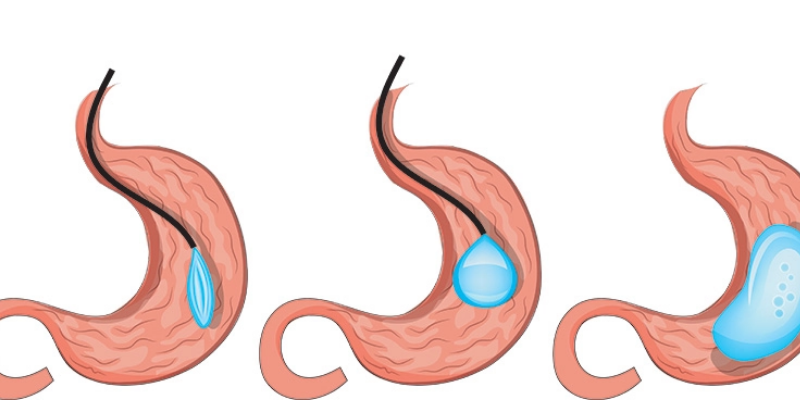Kaiser Weight Loss Surgery
Every year, around 20,000 individuals in Turkey get Kaiser weight loss surgery. Last August, the Ministry of Health, which published a circular in 2017 on how obesity procedures should be conducted, created a 50-page protocol. The framework of the conditions to be searched in patients who will apply for bariatric surgery has been explicitly outlined using this procedure. As a consequence of the protocol developed by assessing all of the world’s treatment recommendations, information on the criteria for the patients to be operated on, the side effects to be observed, and the treatment of these effects were provided. Obesity prevention is the first and most crucial step in obesity therapy. This process of prevention should begin in infancy, and good eating and everyday physical exercise should become habits.
If the overweight issue continues despite the help of an internist and a dietician, surgical treatments should be considered. When required, do not be afraid to seek professional assistance. First and foremost, the individual must have a history of obesity for at least three years, be free of chronic alcohol and drug addiction, and be within the boundaries of tolerable surgical risk. A patient undergoing bariatric surgery should not be suffering from an active mental disorder. Although there are no age restrictions, surgery is safer between the ages of 20 and 60. Surgery for weight reduction should only consider as a last option. Obesity surgery should be conducted when the health of persons who are unable to reduce weight despite hormonal imbalances, are unable to achieve success with alternative treatment techniques or are gaining weight again, begins to worsen.
Kaiser Weight Loss Surgery Treatment
Surgical treatments for treating obesity may characterize as procedures that limit food intake, restrict nutrient absorption, or supply both. The capacity of the stomach is decreasing in restrictive operations, as is the quantity of food that enters the stomach and the amount of food that the individual consumes. Part of the gut is bypassing procedures that restrict absorption to minimize nutritional absorption. Depending on the kind of surgery, the patient’s daily meal intake and the pace at which food is absorbing in the intestines decrease. As a result, the patient loses weight swiftly. However, in order for bariatric surgery to have a definitive and long-term impact on weight reduction. The patient must be conscious that he has had a major operation and continue to eat and exercise after the procedure.
Gastric bypass (stomach bypass) and sleeve gastrectomy (tube stomach) are the two most prevalent procedures in bariatric surgery today. These procedures may carry out laparoscopically using tiny incisions. This procedure allows for less painful and safer surgery with fewer incisions. The stomach volume is lowering initially in gastric bypass surgery, lowering the quantity of food that the patient can consume. Furthermore, a portion of the small intestine is skipping. Because the food’s route through the small intestine is shortening, nutritional absorption is reducing. Patients with a high-calorie diet and eating habits should give preference for this surgical procedure. Because these patients have a propensity of consuming modest quantities of high-calorie items.
What Happens During Gastric Sleeve Surgery?
It is likely that procedures that just restrict food consumption may not result in adequate weight reduction. A stomach tube is producing in Sleeve Gastrectomy (Tube Stomach) surgery by cutting and removing the big side of the stomach. With this procedure, both the quantity of food consume and the level of the ‘Ghrelin’ hormone, which is producing from the stomach area and is calling as the hunger hormone, drop, resulting in a sense of fullness. As a result, patients may lose weight swiftly while keeping their natural digestive system intact.
Until recently, gastric bypass surgery was the most widely finish surgical method in the United States. However, since it is simpler and produces comparable effects to bypass surgery, sleeve gastrectomy surgery has become the most often done procedure in the world and in our nation. The length of the procedure will vary based on the kind of surgery conducted, the patient’s level of obesity, and the expertise and experience of the surgical team. The average time for gastric sleeve surgery is 60-90 minutes. Furthermore, it takes 20-25 minutes to prepare and sleep the patient for surgery. Another 20-25 minutes to wake the patient up after the operation. In the case of gastric bypass surgery, this time may be significantly longer.
Gastric Sleeve Surgery
The projected weight reduction after two years in laparoscopic gastric bypass procedures is approximately 70%. Whereas it is about 60% in sleeve gastrectomy, and the patient’s compliance after the surgery is highly crucial in the total weight loss. Weight loss success is directly linking to the patient’s compliance with the diet and activity regimen after surgery. After bariatric surgery, we normally advise our patients to relax at home for 15 days. If the patient works at a desk, he will be able to return to work in 15 days. It is advisable to wait roughly 30 days before starting sports or professions that involve a lot of physical exercises.
Weight loss usually lasts 1.5-2 years following bariatric surgery. In certain situations, individuals may lose extra weight in as short as a year before the procedure is finish. Balance food and exercise are the most critical variables for healthy weight reduction and maintaining an appropriate weight following surgery. However, long-term success is also determining by how effectively you follow all of the guidelines that are laid out for you. To avoid regaining lost weight, it is essential to modify previous eating habits. Adopt a healthy and balanced diet, exercise frequently. Avoid interfering with post-operative exams, maintain motivation, and seek psychological assistance if required.
Bariatric surgery, like all other major surgical procedures, has hazards. The overall health of the patient, the hospital’s technological facilities, and the surgical team’s expertise are all standard risk factors. Bleeding, anastomosis leaks (leakage in the staple line), iron, calcium, vitamin D, and B12 deficits, nutritional issues. Gallstone development is the most prevalent danger of obesity surgery. It is possible to return to open surgery and sagging in specific sections of the body after all laparoscopic bariatric operations.
Kaiser Weight Loss Surgery Coverage
The greatest weight reduction procedure plans in the nation can be Kaiser weight loss surgery ones. Their team provides operations from some of the most accomplished and successful doctors in the industry, and the outcomes are exceptional. They have excellent surgeons and detailed strategies. You may be confident that Kaiser is taking good care of you. The most crucial thing to keep in mind is that having stomach surgery for weight loss is a serious decision and should not be rushed into.

So, consider Kaiser weight loss surgery if you are thinking about having the treatment. Make sure the plan you select is the best fit for you if you are thinking about one of the Kaiser surgery for weight loss options. There are many things to think about, including cost, success rate, and side effects. It is crucial to consult your doctor after determining which plan is ideal for you and receive their opinion. They will be able to assist you in determining whether you are an appropriate surgical candidate and respond to any queries you may have. Surgery for weight loss is a significant step, but if chosen wisely, it can be highly beneficial.



